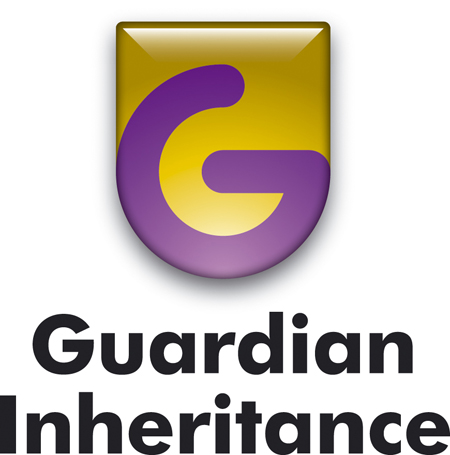.
Peace of mind comes from knowing that the ‘what if’s’ in life have been taken care of.

.
.
"We haven't got much but we have worked hard for what we have. We wanted to make sure that our family and only our family would benefit from our hard work. We set up a Legacy Trust, knowing that it has completely ring-fenced our house. Thank you Guardian Inheritance for all of your time you spent with us."
.
Mr & Mrs H. Birmingham
Trusts
People are living longer, family structures are more complex and everyone’s circumstances are unique so, you should be wary of a ‘one size fits all’ solution when making a Will or other estate plan. Loved ones’ not receiving what you wanted them to have due to sideways disinheritance (wealth and assets leaving the desired inheritance line) caused by eventualities such as a beneficiary getting divorced, married, suffering financial hardship or dying prematurely is all too common and is a danger to virtually all families.
Properly constituted trusts can reduce the risk of having your wishes successfully challenged by those you may want to exclude as beneficiaries. Furthermore, there are often unnecessary delays in loved ones receiving inheritance and significant costs deducted from the estate. This can all be avoided if you receive the right advice tailored made for your circumstances, wishes and desires. A Barrister Intermediary will spend the time with you to ensure your Legacy Planning gives you both protection & certainty.
Home protection plans
To protect up to 50% of the value of your home, for your children's inheritance in the event of separation, remarriage after divorce, or the death of a spouse. This sort of Will Trust can be used to provide for children from other relationships.
Nil rate band trusts
To help reduce or eliminate your Inheritance Tax liability by preserving the inheritance tax allowance for the first to die of a couple.* Thereby saving up to £130,000 in the current tax year. This type of trust only comes into effect after the first of an unmarried couple dies, and is therefore a Will Trust.
Pilot trusts
To reduce, minimise or eliminate Inheritance Tax by placing assets into trust immediately. The settlor will need to forego all rights to those assets, perhaps in favour of the beneficiaries. Additional Trusts may be set up every 7 years, once the assets in the previous Trust have ‘fallen out’ of the settlors estate for inheritance tax (IHT) purposes. Pilot Trusts are ideal to receive investment property, investments or cash etc. Pilot trusts can be set up as Will trusts or life time trusts.
Discretionary trusts
Is a Will trust and is used to keep assets out of the names of the intended beneficiaries. Discretionary trusts are used, principally, in one or more of the following circumstances:
• Where a beneficiary has special needs and is unable to manage their own finances.
• Where a beneficiary has a physical or mental condition and in receipt of state benefits, which would be reduced or lost should they inherit a substantial sum.
• Where a beneficiary is alcohol or drug dependent or has a gambling addiction and you are concerned that they will misuse their inheritance.
Discretionary Trusts can be set up as Will trusts or lifetime trusts.
*Not applicable to married couples or those in a Civil Partnership.
Properly constituted trusts can reduce the risk of having your wishes successfully challenged by those you may want to exclude as beneficiaries. Furthermore, there are often unnecessary delays in loved ones receiving inheritance and significant costs deducted from the estate. This can all be avoided if you receive the right advice tailored made for your circumstances, wishes and desires. A Barrister Intermediary will spend the time with you to ensure your Legacy Planning gives you both protection & certainty.
Home protection plans
To protect up to 50% of the value of your home, for your children's inheritance in the event of separation, remarriage after divorce, or the death of a spouse. This sort of Will Trust can be used to provide for children from other relationships.
Nil rate band trusts
To help reduce or eliminate your Inheritance Tax liability by preserving the inheritance tax allowance for the first to die of a couple.* Thereby saving up to £130,000 in the current tax year. This type of trust only comes into effect after the first of an unmarried couple dies, and is therefore a Will Trust.
Pilot trusts
To reduce, minimise or eliminate Inheritance Tax by placing assets into trust immediately. The settlor will need to forego all rights to those assets, perhaps in favour of the beneficiaries. Additional Trusts may be set up every 7 years, once the assets in the previous Trust have ‘fallen out’ of the settlors estate for inheritance tax (IHT) purposes. Pilot Trusts are ideal to receive investment property, investments or cash etc. Pilot trusts can be set up as Will trusts or life time trusts.
Discretionary trusts
Is a Will trust and is used to keep assets out of the names of the intended beneficiaries. Discretionary trusts are used, principally, in one or more of the following circumstances:
• Where a beneficiary has special needs and is unable to manage their own finances.
• Where a beneficiary has a physical or mental condition and in receipt of state benefits, which would be reduced or lost should they inherit a substantial sum.
• Where a beneficiary is alcohol or drug dependent or has a gambling addiction and you are concerned that they will misuse their inheritance.
Discretionary Trusts can be set up as Will trusts or lifetime trusts.
*Not applicable to married couples or those in a Civil Partnership.
.
.
Legacy Trust: Lifetime / Legacy Trust
There are many types of Lifetime Trust, each one designed to achieve a different result. All of our Lifetime Trusts are drafted by our Barristers, to give you peace of mind.
The Legacy Trust included in our Legacy Plan is designed to safeguard your assets from a number of potential future claims against your estate.
It is recommended that your largest asset is placed in the Trust, which is often the family home. It offers the following:
Flexibility:
You (the settlor) retain full control over the assets within the Trust, allowing you the flexibility to live within the property, or move home as frequently as you see fit. In effect, ring fencing your property in this way, still allows you to do whatever you would have done, had the Trust not been in place. For example, extensions, renovations etc.
Protection against:
Dilution of your assets in the event of your divorce and remarriage: if you divorce and either of you remarry, your beneficiaries may be partially or entirely disinherited when you die.
Erosion of your estate in the event of the death of one spouse and remarriage of the survivor: when the first one of you dies, if the survivor remarries, your beneficiaries may lose all or part of their inheritance.
The watering down of assets in the event of divorce and remarriage of beneficiaries: that means that your beneficiaries’ inheritance or potential inheritance, will not be shared with an ex-spouse.
Reduction in inheritance due to death of a beneficiary and remarriage of the survivor: If one or more of your beneficiaries dies before their spouse(s), and the surviving spouse remarries, your grandchildren may be partially or entirely disinherited.
Shielding assets from claims by creditors: In the event that you or your beneficiaries fall on hard times, creditors will not have access to any assets placed in the Trust.
Preservation of state benefits: A beneficiary who is reliant on state benefits may find those benefits being withdrawn, due to their inheritance. This can be prevented by placing assets into Trust, still allowing the beneficiary full access.
Guaranteed bloodline inheritance: The Trust ensures that only your children, grandchildren and future great-grandchildren (remoter issue) will be the only beneficiaries to inherit, if this is your wish. Thereby excluding spouses’ access to the inheritance.
Claims from excluded beneficiaries: estranged family members may have a claim against your estate, even though they have specifically been excluded in your Will. This Trust protects against this eventuality.
Accessibility: Gives beneficiaries access to assets in your estate prior to probate being granted, which can be used to pay essential bills, for example Inheritance Tax (IHT)
Savings in the following:
The legal fees to obtain Probate: Due to your home being placed into Trust, it does not need to go through the Probate process, consequently, saving in legal fees to obtain Probate, which may amount to may thousands of pounds. This means your beneficiaries could inherit significantly more.
Generational Inheritance Tax (IHT): When your beneficiaries die, the assets in the Trust will not form part of their personal estate for Inheritance Tax or Probate purposes. Thereby increasing the inheritance received by their beneficiaries.
Time: On death, until Probate is granted, all of your assets are frozen. If your home is placed into Trust, it will not need to go through the Probate process. This should significantly speed up the Probate process and will give your beneficiaries’ instant control of your home.
Legacy Trusts facilitate Sharia compliant Legacy Planning.
There are many types of Lifetime Trust, each one designed to achieve a different result. All of our Lifetime Trusts are drafted by our Barristers, to give you peace of mind.
The Legacy Trust included in our Legacy Plan is designed to safeguard your assets from a number of potential future claims against your estate.
It is recommended that your largest asset is placed in the Trust, which is often the family home. It offers the following:
Flexibility:
You (the settlor) retain full control over the assets within the Trust, allowing you the flexibility to live within the property, or move home as frequently as you see fit. In effect, ring fencing your property in this way, still allows you to do whatever you would have done, had the Trust not been in place. For example, extensions, renovations etc.
Protection against:
Dilution of your assets in the event of your divorce and remarriage: if you divorce and either of you remarry, your beneficiaries may be partially or entirely disinherited when you die.
Erosion of your estate in the event of the death of one spouse and remarriage of the survivor: when the first one of you dies, if the survivor remarries, your beneficiaries may lose all or part of their inheritance.
The watering down of assets in the event of divorce and remarriage of beneficiaries: that means that your beneficiaries’ inheritance or potential inheritance, will not be shared with an ex-spouse.
Reduction in inheritance due to death of a beneficiary and remarriage of the survivor: If one or more of your beneficiaries dies before their spouse(s), and the surviving spouse remarries, your grandchildren may be partially or entirely disinherited.
Shielding assets from claims by creditors: In the event that you or your beneficiaries fall on hard times, creditors will not have access to any assets placed in the Trust.
Preservation of state benefits: A beneficiary who is reliant on state benefits may find those benefits being withdrawn, due to their inheritance. This can be prevented by placing assets into Trust, still allowing the beneficiary full access.
Guaranteed bloodline inheritance: The Trust ensures that only your children, grandchildren and future great-grandchildren (remoter issue) will be the only beneficiaries to inherit, if this is your wish. Thereby excluding spouses’ access to the inheritance.
Claims from excluded beneficiaries: estranged family members may have a claim against your estate, even though they have specifically been excluded in your Will. This Trust protects against this eventuality.
Accessibility: Gives beneficiaries access to assets in your estate prior to probate being granted, which can be used to pay essential bills, for example Inheritance Tax (IHT)
Savings in the following:
The legal fees to obtain Probate: Due to your home being placed into Trust, it does not need to go through the Probate process, consequently, saving in legal fees to obtain Probate, which may amount to may thousands of pounds. This means your beneficiaries could inherit significantly more.
Generational Inheritance Tax (IHT): When your beneficiaries die, the assets in the Trust will not form part of their personal estate for Inheritance Tax or Probate purposes. Thereby increasing the inheritance received by their beneficiaries.
Time: On death, until Probate is granted, all of your assets are frozen. If your home is placed into Trust, it will not need to go through the Probate process. This should significantly speed up the Probate process and will give your beneficiaries’ instant control of your home.
Legacy Trusts facilitate Sharia compliant Legacy Planning.
.
.

.
Aren't Trusts only for rich people?
- Until about 50 years ago, only the wealthy took advantage of setting up trusts. In the last half century, more and more of us are owning our own properties. These properties are forming the largestfinancial asset in our possession when we die. Trusts may be used to ensure blood line inheritance and prevent the assets you leave from being diluted by divorce, premature death or bankruptcy of a beneficiary.
- There are a number of different trusts. Some trusts are authorised within the terms of a Will (Will Trusts) others are set up during a person’s life time (Life Time Trusts). Each Trust works in a different way and is designed to achieve a specific outcome based on each person’s individual requirements. Trusts will be appropriate if both parents die before their children reach 18 or if they have children with special needs or who are vulnerable in some other way.
.
Can you set up Trusts to prevent your assets being used to pay for long term care fees?
- No.
- If a trust has been established in order to prevent your assets from being used to pay long term care fees (deliberate deprivation), the local authority may take action to set the trust aside.
.
Can we put our holiday home into a Trust to save inheritance tax and still use it?
- There are broadly two different types of trust that you can place a holiday home into.
- Our legacy trust (see trust page) will allow you to continue using the property, including enjoying any income you may receive. But it will not save inheritance tax. It does however ensure blood line inheritance. It also saves on legal fees to obtain probate and give your beneficiaries immediate access after your death.
- Our Pilot Trust (see trust page) will reduce your inheritance tax liability should you die after 4 years from the date at which the trust was created. You are, however, unable to enjoy any rental income or any benefit which includes temporary occupation, unless you pay a full market rent.
.
.
.




